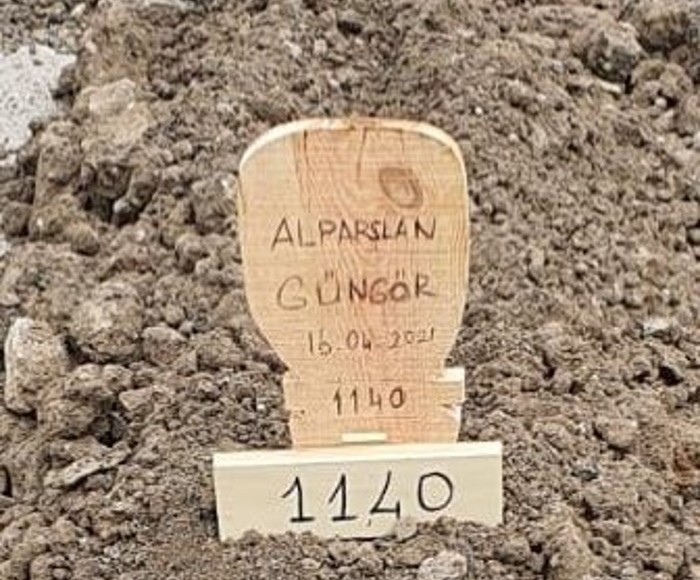Former judge Alparslan Güngör, who was imprisoned for three years on alleged Gülen links and diagnosed with stage four lung cancer shortly after his release, died on Friday, bringing attention once again to the lack of proper healthcare in Turkish prisons, the Stockholm Center for Freedom reported.
According to the Free Judges website, launched by former members of the Turkish judiciary and dedicated to covering news on the persecution of judges in the country, Güngör’s illness was discovered during a physical examination after his release, by which time it had reached the point of no return.
Güngör was sentenced to six years, three months in prison. His case was pending review at the Supreme Court of Appeals when he died.
Turkish President Recep Tayyip Erdoğan has been targeting followers of the Gülen movement, a faith-based group inspired by Muslim cleric Fethullah Gülen, since the corruption investigations of December 17-25, 2013, which implicated then-Prime Minister Erdoğan, his family members, and his inner circle.
Dismissing the investigations as a Gülenist coup and conspiracy against his government, Erdoğan designated the movement as a terrorist organization and began to target its members. He intensified the crackdown on the movement following a coup attempt on July 15, 2016, that he accused Gülen of masterminding. Gülen and the movement strongly deny involvement in the abortive putsch or any terrorist activity.
Following the abortive putsch, the Turkish government declared a state of emergency and carried out a massive purge of state institutions under the pretext of an anti-coup fight. More than 130,000 public servants, including 4,156 judges and prosecutors, as well as 20,610 members of the armed forces were summarily removed from their jobs for alleged membership in or relationships with “terrorist organizations” by emergency decree-laws subject to neither judicial nor parliamentary scrutiny.
The purge has resulted in a drastic increase of political prisoners in Turkish prisons, some of whom are severely ill.
Critics have slammed Turkish authorities for refusing to release critically ill prisoners.
Ömer Faruk Gergerlioğlu, a human rights activist and former deputy from the pro-Kurdish Peoples’ Democratic Party (HDP), said critically ill political prisoners were not released from prison “until it reaches the point of no return.” He depicted the deaths of seriously ill prisoners in Turkey who are not released in time to receive proper medical treatment as acts of “murder” committed by the state.
According to the Human Rights Association (İHD), there are more than 1,605 sick prisoners in Turkish prisons, approximately 604 of whom are critically ill. Although most of the seriously ill patients have forensic and medical reports deeming them unfit to remain in prison, they are not released. Authorities refuse to release them on the grounds that they pose a potential danger to society. In the first eight months of 2020, five critically ill prisoners passed away because they were not released in time to receive proper medical treatment.
Since April four seriously ill prisoners over the age of 70 have died in penal institutions; five inmates suffering from cancer died shortly after they were released; and 16 died of chronic illnesses while imprisoned.



